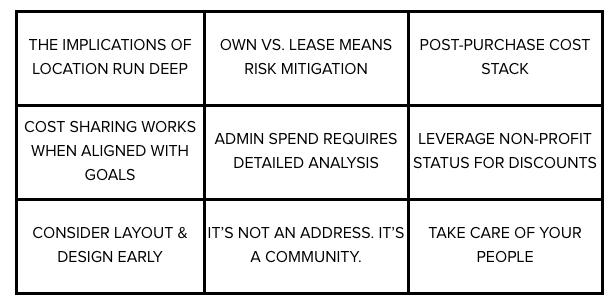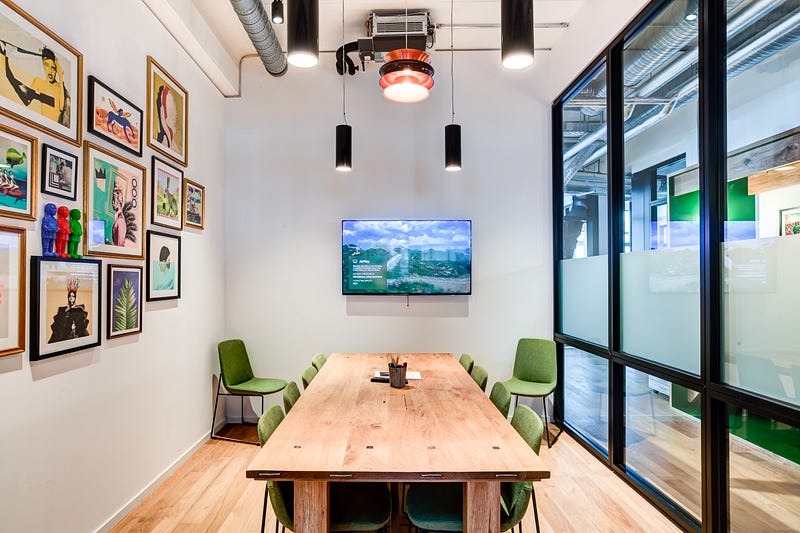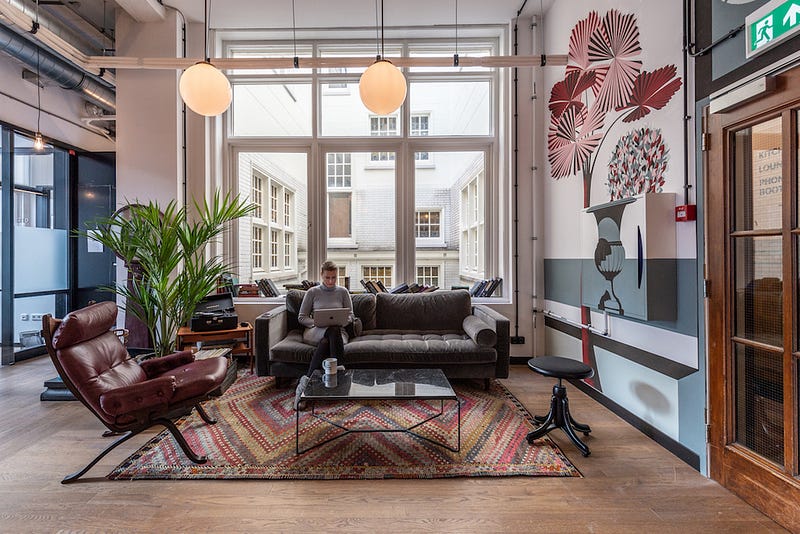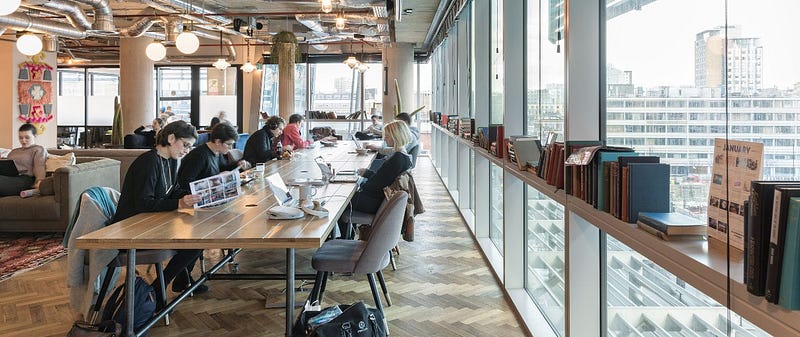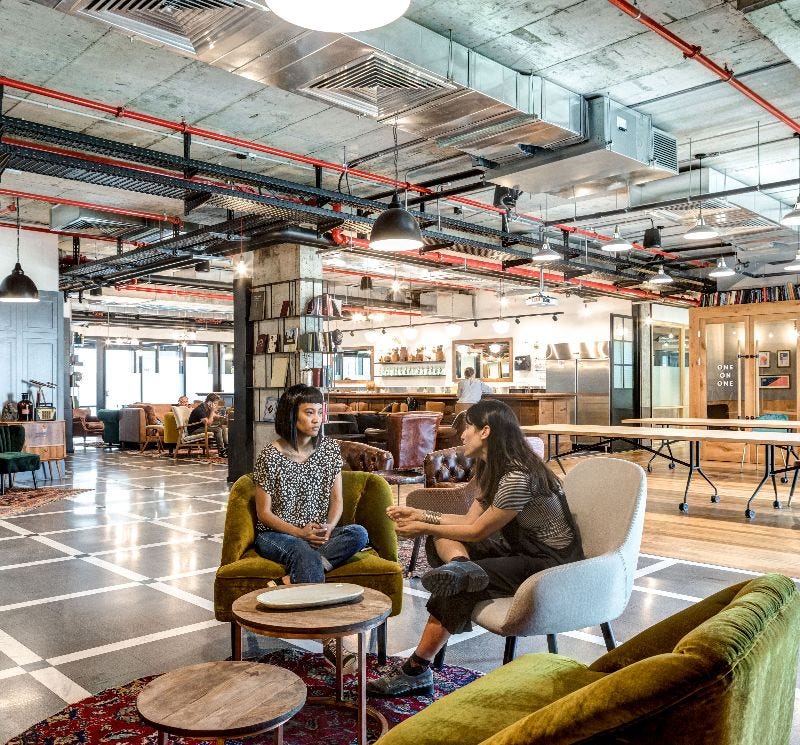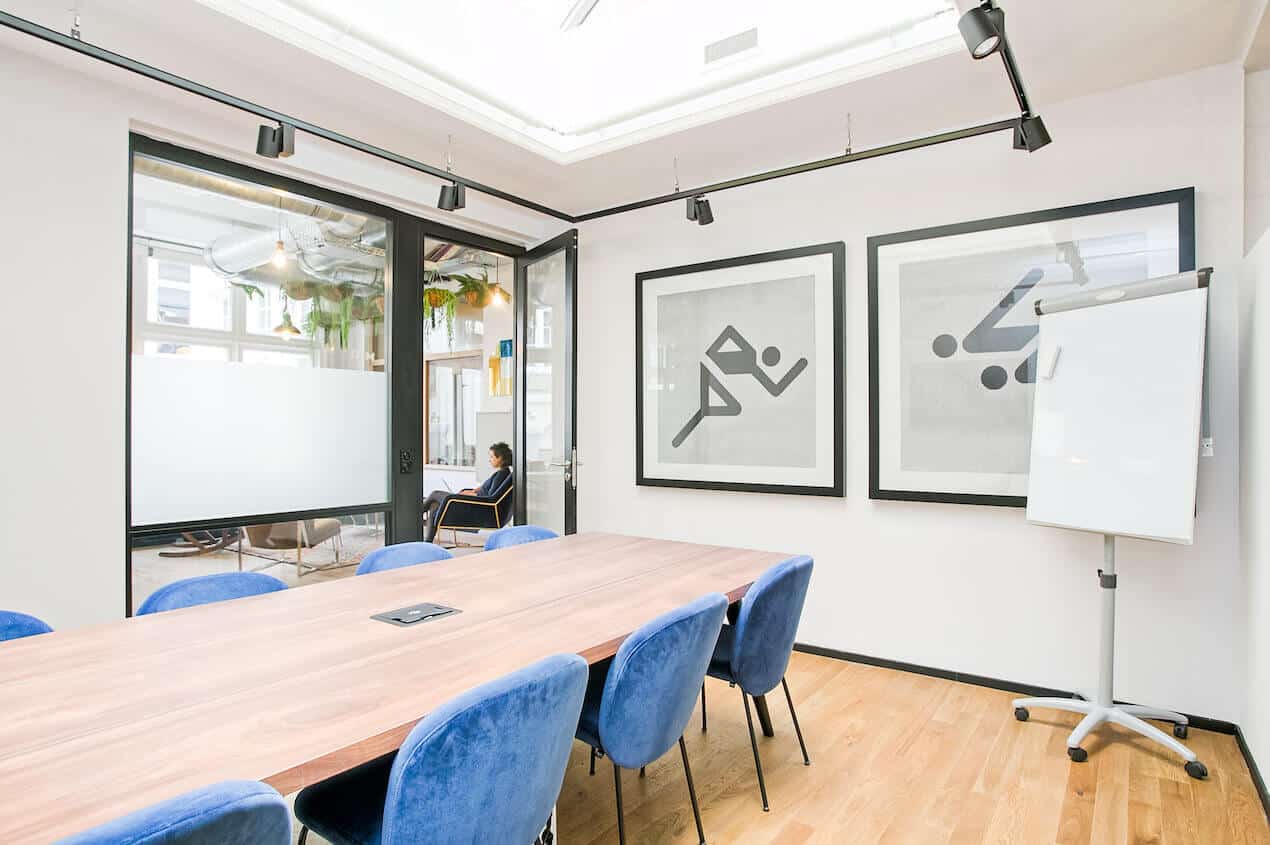The 9 Key Themes for NGOs/NPOs to consider when choosing a workspace
Are you reaping all of the potential benefits of an optimal location?
What you will learn in this report:
Despite trends in digital collaboration, a strategic geographic location continues to be essential for organizational success. For instance, any organization seeking space in Washington D.C. typically desires easy access to government and business centers, as well as major transportation routes. Discover other key factors your NGO should be considering when it comes to location.
The own vs. lease debate has intrinsic implications in terms of risk and risk mitigation. Risk lurks on both sides of the debate. Gain insight into this key decision, and the pros and cons behind the options, to make a more informed decision for your NGO.
Optimal office function requires a variety of costs that depend upon your occupancy model. Any purchase vs. lease vs. cowork solution cost analysis should take all factors into account. Discover these factors, and how one additional model could save your NGO up to 40% vs. the traditional lease model.
Besides the obvious tax advantages, both the government and the private sector may be willing to offer discounts to non-profits. Discover in the full report, whether your non-profit could be capitalizing on important discounts related to workspace.
The essence of every citizen sector organization is people. For this reason, when NGOs choose a workspace, the human element remains front and center. When scouting around, consider these questions:
- Does the area serve our clients and team faithfully?
- What opportunities exist to improve/expand team knowledge/skills?
- Can staff wellness be improved in this space?
- Does the building/area offer any special perks, such as an on-site parents’ room like our Wynwood coworking space? Or maybe even a fitness center with Peloton bikes, meditation pods and a bouldering wall like Mindspace’s Williamsburg coworking?
- How would I describe the personality of the space? Does it fit my organization?
Learn the implications of workspace on human resources, and what matters most, in the full report.
As part and parcel of its identity, the effective non-profit & non-governmental organization immediately scans the nearby landscape for potential clients and partners who have an interest in the organization’s mission. This process begins at the level of next-door-neighbor to building occupants to the nearby geographic area. Leading NGOs continuously foster cross-industry relationships. This goes far beyond just looking for donors. Instead, the goal is to cultivate a synergy where true win-win scenarios occur. When evaluating workspaces, the nonprofit should perform a census of other building occupants in addition to the immediate surrounding area. Even though we live in a digital age, the live meeting remains the most effective way to communicate your message.
Office ownership offers the full freedom to implement and design workspace layout and design. Major renovation costs should be taken into account, and this also applies to leases that allow for cosmetic changes. While downstream from more central issues, the impact of design should be considered early.
The importance of a quality work environment has a dramatic effect on team satisfaction and morale. Beautiful, comfortable, creatively stimulating spaces reflect organization culture and core values — and can be fundamental in helping both to attract top talent and to reduce talent turnover.
A workplace productivity and satisfaction report, commissioned by Mindspace with independent research firm OnePoll, surveyed employees in the Washington D.C. and San Francisco area and showed that comfortable furniture and breakout areas were improvements that workers wanted most. Social spaces foster collaboration and creativity. The workplace strategy for nonprofits, therefore, should include planning the physical space where teams will drive the mission forward.
To uncover further insights about how your non-profit can optimize its workspace selection process and other workspace benefits: [DOWNLOAD THE FULL REPORT]



